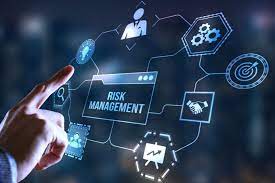
OTHM Level 7 Diploma in Risk Management
The OTHM Level 7 Diploma in Risk Management is designed to meet this demand, equipping professionals with advanced knowledge and skills in risk management.
Understanding OTHM:
The OTHM (Organization for Tourism and Hospitality Management) is a recognized awarding organization based in the United Kingdom, dedicated to providing high-quality management qualifications across various sectors. Their qualifications are designed in consultation with industry experts and adhere to rigorous quality standards, ensuring that learners receive the most relevant and up-to-date education.
Rigorous Curriculum: The program covers a wide range of topics related to risk management, such as risk identification, analysis, evaluation, and response strategies. Learners gain a deep understanding of various risk types, including financial, operational, strategic, and compliance-related risks.
Real-World Relevance: The curriculum is designed to be highly practical, allowing students to apply their knowledge to real-world scenarios and case studies. This hands-on approach prepares them to handle actual risk management challenges faced by organizations today.
Industry-Recognized Qualification: OTHM is a reputable awarding organization recognized by employers worldwide. Holding a Level 7 Diploma in Risk Management from OTHM can significantly enhance a professional’s credibility and employability in the job market.
Expert Faculty: The diploma is delivered by experienced industry practitioners and subject matter experts who provide valuable insights and practical guidance throughout the course.
Flexible Learning Options: OTHM understands the diverse needs of learners, and as such, offers flexible learning options. Students can choose to study full-time, part-time, or through online distance learning, making it accessible to working professionals.
Course Modules:
The OTHM Level 7 Diploma in Risk Management comprises several modules that cover key aspects of risk management. Some of the core modules include:
Risk Assessment and Management – This module delves into risk analysis techniques, the evaluation of risk exposure, and the development of risk management strategies tailored to specific organizational contexts.
Corporate Governance and Ethics – Learners explore the importance of corporate governance and ethical considerations in risk management. Understanding ethical practices is vital for sustainable and responsible risk management.
Financial Risk Management – This module focuses on financial risk assessment and methods to manage financial risks effectively, including credit risk, market risk, and liquidity risk.
Operational Risk Management – Operational risks can significantly impact an organization’s performance. This module covers techniques to identify, assess, and mitigate operational risks.
Strategic Risk Management – Strategic decisions inherently carry risks. This module addresses strategic risk analysis and the integration of risk management into strategic planning.
Risk Management Frameworks and Standards – Learners study various risk management frameworks and standards, such as ISO 31000, COSO ERM, and NIST, to gain a comprehensive understanding of industry best practices.
Crisis and Business Continuity Management – This module explores crisis management strategies and the development of business continuity plans to ensure organizations can effectively navigate unforeseen events.
Career Prospects:
Graduates of the OTHM Level 7 Diploma in Risk Management are equipped to pursue diverse career paths. They can take up roles such as:
- Risk Manager
- Risk Analyst
- Compliance Manager
- Business Continuity Manager
- Internal Auditor
- Financial Analyst
- Management Consultant
- Operational Risk Specialist
Entry requirements:
For entry onto the OTHM Level 7 Diploma in Risk Management qualification, learners must possess:
- An honours degree in related subject or UK level 6 diploma or an equivalent overseas qualification
- Mature learners with management experience (learners must check with the delivery centre regarding this experience prior to registering for the programme)
- Learners must be 21 years old or older at the beginning of the course
- English requirements: If a learner is not from a majority English-speaking country must provide evidence of English language competency
Equivalences:
The OTHM Level 7 diplomas on the Regulated Qualifications Framework (RQF) are at the same level as master’s degrees. However, they are shorter (120 credits) and learners will have to proceed to the dissertation stage (60 credits) with university to achieve a full masters programme.
Qualification structure:
The OTHM Level 7 Diploma in Risk Management qualification consists of 6 mandatory units for a combined total of 120 credits, 1200 hours Total Qualification Time (TQT) and 600 Guided Learning Hours (GLH) for the completed qualification.
Mandatory units:
- Principles of Risk Management
- Strategic Risk Management
- Responsible Leadership and Governance
- Organisational and Environmental Risk
- Risk Analysis and Modelling
- Advanced Research Methods
Conclusion:
In an increasingly uncertain world, organizations need skilled risk management professionals who can navigate challenges and create opportunities for sustainable growth. The OTHM Level 7 Diploma in Risk Management provides learners with the knowledge, skills, and confidence to become effective risk management experts, contributing to the success and resilience of businesses and organizations across various industries. Embracing this program is an investment in professional excellence and a stepping stone towards a rewarding and fulfilling career in risk management.